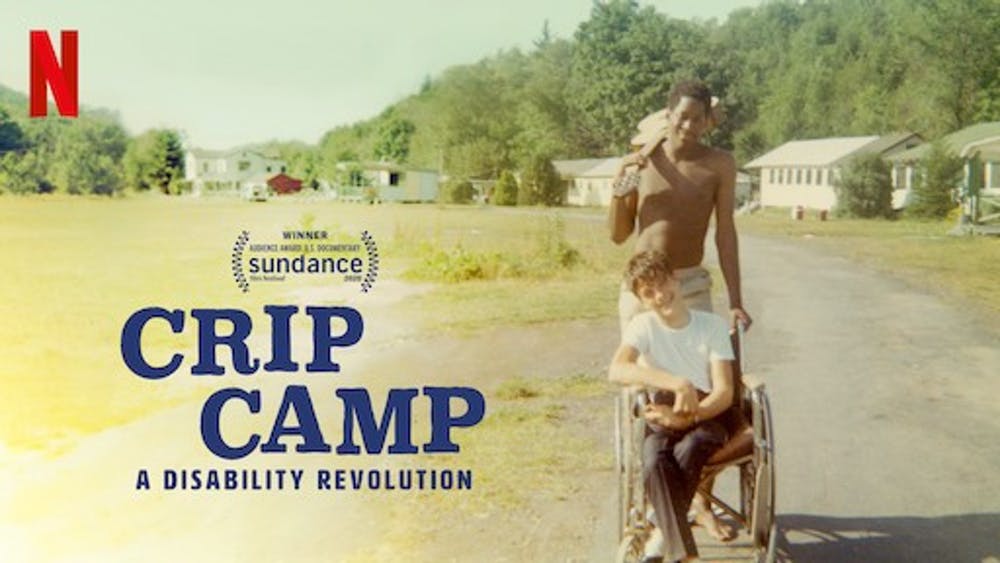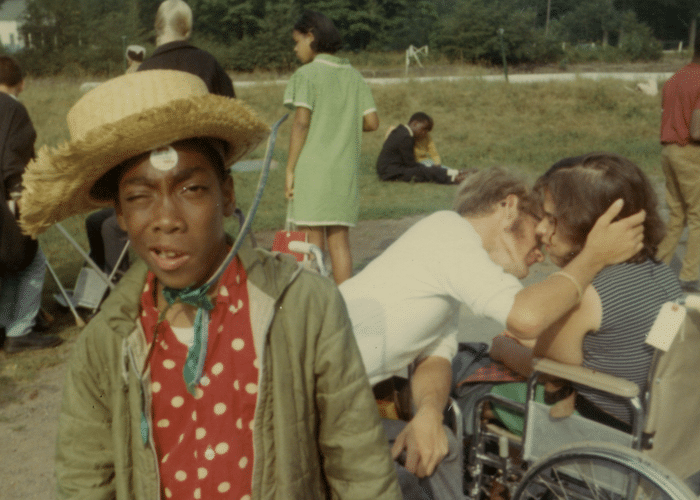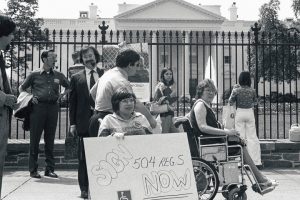Crip Camp: How A Hippie Summer Camp Changed America
Directed by James Lebrecht and Nicole Newnham, Crip Camp is a feelgood documentary that chronicles the lives and activism of a group of teenagers turned strong-willed adults in the 1970s. The film takes the audience through the life-changing experience of summers at Camp Jened, showing the open possibilities kids with disabilities were exposed to at camp that they could not experience in everyday life. From teenagers to their transition into adulthood, we follow these determined young adults as they leave their nests and head out into the world to make names for themselves. Crip Camp is not just a coming of age documentary, it’s a story of persistence and resilience, and it shows us what can happen when we spend a summer in New York with some really rad hippies.

We are introduced to the campers of Camp Jened through a series of home videos taken in 1971 by camper, turn director, James Lebrecht. Roaming around his campgrounds and interviewing his campmates and camp counselors, Camp Jened seems like the perfect summer getaway for any child. Although the camp is for kids with disabilities, Camp Jened does not serve as a babysitting ground for these talented and rambunctious teens, it serves as their getaway from society and their own little Utopia.
Life in the 1970s was not kind for many kids with disabilities as parents were afraid to let their kids be free, school systems did not generally have special education programs, and other kids and adults were not knowledgeable of many others with special needs. Camp Jened gave these kids a place where they were the majority. The campers share their thoughts through a series of interviews and behind the scenes style shots about their aggravations with their own parents and strangers who may come across them. But the majority of their stay at camp focuses on what all kids love doing, hanging with their friends, falling in love, sneaking a smoke while away from their parents and experimenting doing things they usually wouldn’t be able to do. Camp Jened was seemingly just a free-spirited no judgment zone that garnered strong relationships and a sense of community among the campers even beyond their summer at this Catskills sleepaway camp.

The footage of campers playing baseball, figuring out what to eat for dinner, playing music out on the front of their bunk, and being quarantined for a rabid case of the crabs only tapped on what the true essence of what this film is about. After summer camp, the documentary follows the campers as they journey through college and starting their jobs and careers and eventually settles in Berkley, California where groups “of radical disabled people were making room for themselves.” Some campers from Jened ended up married and some ended up as roommates, but the goals they had were similar. The documentary shifts from more than just a feel-good documentary about a group of campers who got to experience a summer of freedom, but about the shift of society and how they aimed to shift the perception of individuals with disabilities.
The Center for Independent Living is introduced, founded by Ed Roberts, as “a place ran by the handicap for the handicap,” where “a group of severely disabled individuals to solve mutual problems.” One by one, members of the “traveling Camp Jened show” moved to Berkely to take part in operating The Center for Independent Living. This move and push to help other disabled people was not the last stop for these campers turned activists, it was just the beginning; and, again the documentary shifted to an even deeper reflection at what people will do to be heard, understood, and respected.
What had begun as a feelgood documentary eventually turns very serious as it shifts focus to much more serious action from not just the Camp Jened kids, but the disability community around the US who were pushing the issue of section 504 of the Rehabilitation Act in April of 1977 at Health, Education, and Welfare buildings across the States. Protests eventually turned into a shut-in, showing the limits these determined individuals were willing to go to demand and ensure they had rights. The demonstration turned into a nearly month-long sit-in. Lights and water were cut off in the buildings. Individuals were on hunger strikes. Many individuals in need of important medical supplies went without until they could not stay any longer. Even after finally being permitted to speak with two council members and still not being as heard as they wanted to, a group of activists, led by Camp Jened councilor, Judith Huemann flew to Washington D.C. where they were determined to have their requests and demands heard by President Nixon. For weeks, disable activists protested in front of the White House and on the streets of Washington. After 24 days of protest and only after the story was fatefully aired on ABC news around the country bringing heat onto the US Government, section 504 was passed bringing Americans of all disabilities together.

The fight didn’t stop there. It became time for a civil change. A change that would enforce the 504 regulations. This need for change sparked the proposal of the Americans with Disabilities Act, passed in July 1990.
This documentary not only portrays the disability community, but a greater fight to be heard, to be respected, to be recognized as an integral part of society. What started as a group of kids enjoying their summer with friends, ultimately changed America. This is more than a feel-good documentary, this is a testament to speaking up and showing others that no matter the obstacle they may throw in your way, you will overcome them, no matter what sets you apart.
Crip Camp is now streaming on Netflix. A testament to the revolution of the disability community it may be, this movie is not recommended for viewing with small children.

